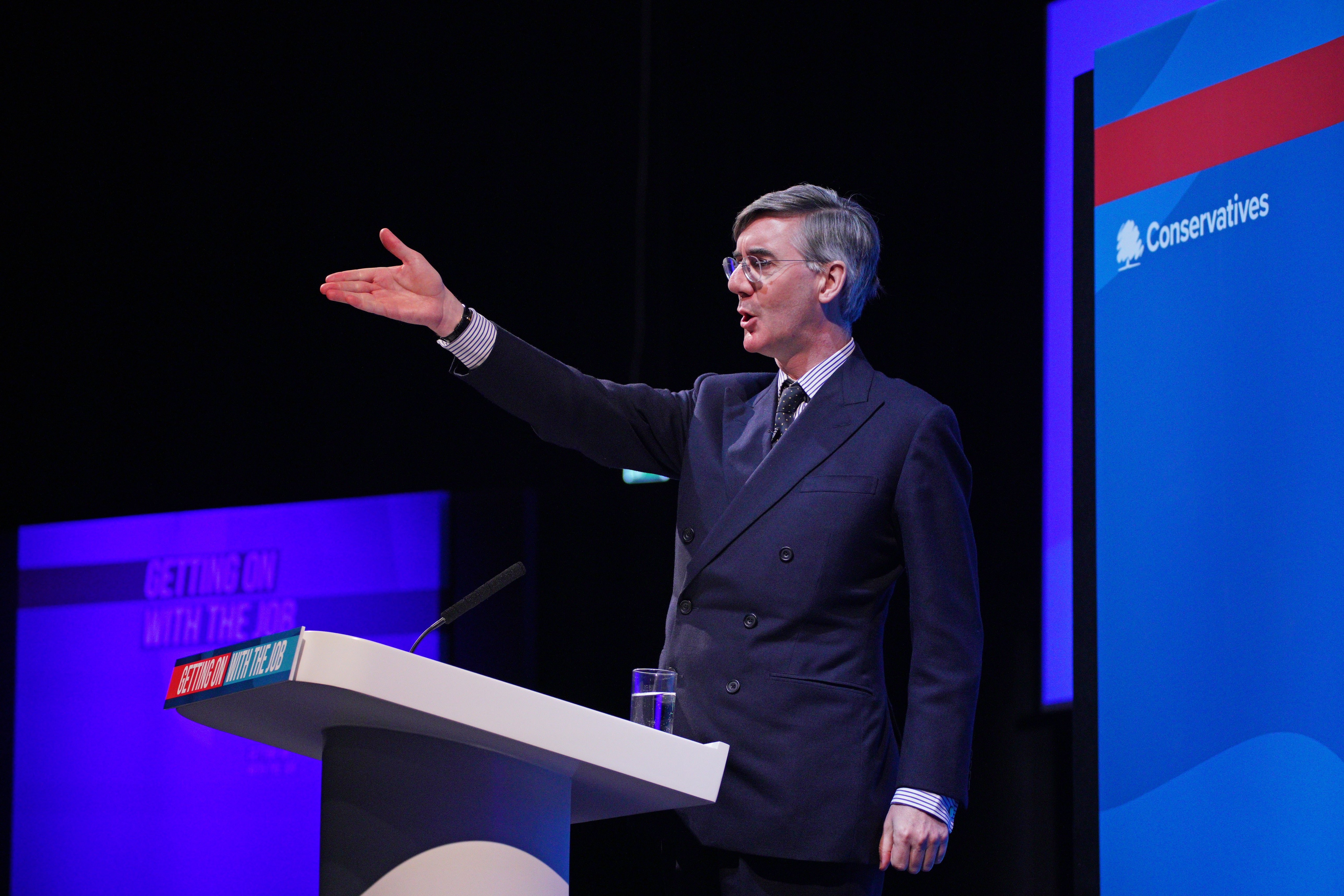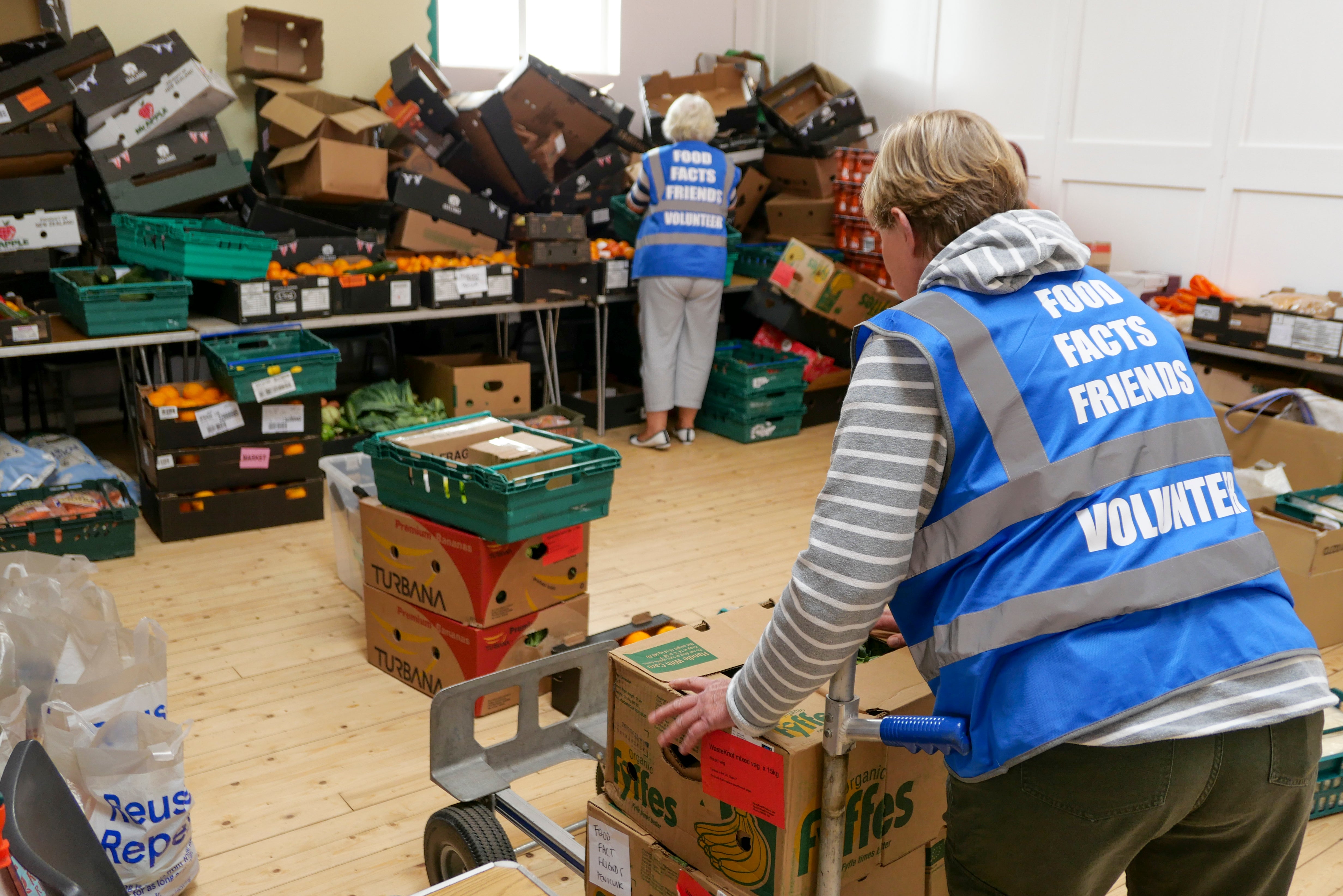Brexit has caused UK food prices to rise 6% as cost of living crisis deepens, study says
Trade friction has ‘clear and robust’ impact on supermarket prices, say economists
Your support helps us to tell the story
From reproductive rights to climate change to Big Tech, The Independent is on the ground when the story is developing. Whether it's investigating the financials of Elon Musk's pro-Trump PAC or producing our latest documentary, 'The A Word', which shines a light on the American women fighting for reproductive rights, we know how important it is to parse out the facts from the messaging.
At such a critical moment in US history, we need reporters on the ground. Your donation allows us to keep sending journalists to speak to both sides of the story.
The Independent is trusted by Americans across the entire political spectrum. And unlike many other quality news outlets, we choose not to lock Americans out of our reporting and analysis with paywalls. We believe quality journalism should be available to everyone, paid for by those who can afford it.
Your support makes all the difference.Brexit has caused a six per cent increase in Britain’s food prices, according to new evidence showing the impact of the UK’s departure from the EU.
Economists found that greater trade barriers on imports from the bloc has had a “clear and robust” impact on food prices, as hard-pressed families struggle to cope with the cost of living crisis.
Grocery bills have risen most sharply for food products more reliant on imports from the EU, the study by the LSE Centre for Economic Performance revealed.
Products with high EU import shares such as fresh pork, tomatoes and jams were more affected than those with low EU import shares such as tuna and exotic fruits like pineapple.
Nikhil Datta, LSE researcher, said the findings showed “a clear and robust impact of Brexit-induced trade frictions increasing food prices for UK consumers during a time when the economy is already facing inflationary pressures from global sources”.

The academics’ analysis shows that Brexit increased average food prices by about six per cent over 2020 and 2021, with the very sharpest rise coming after the Brexit trade deal came into force at the start of last year.
Brexit opportunities minister Jacob Rees-Mogg claimed earlier this month that rising food costs had “nothing to do with Brexit” – blaming global inflation and the Ukraine crisis.
Professor Anand Menon, director at UK in a Changing Europe, said the latest research “illustrates all too clearly that Brexit has had, and will continue to have a significant impact on our trade with the EU and hence on our economy”.
Calling on ministers to acknowledge the impact of Brexit, Prof Menon added: “We would be better placed to react to this if our debate were more honest about Brexit costs and benefits.”
It comes as separate research by Kantar analytics found that Britons can expect to spend an additional £271 on their groceries this year. The price of groceries has increased at its fastest rate in 11 years, with food price inflation hitting 5.9 per cent in April.
A new YouGov survey published on Tuesday found that 85 per cent of Britons have been affected by increasing food prices, nine in 10 (89 per cent) people said they have been hit by higher energy prices.

Meanwhile, food bank managers have warned of the damage the crisis is doing among the poorest families, as both soaring bills and price hikes push a growing number of people into hardship.
New figures from the Trussell Trust network showed that food banks provided than 2.1 million parcels in the year until March – a 14 per cent increase since the period before the Covid pandemic.
Boris Johnson was criticised for holding a cabinet meeting in which he asked for “innovative” ideas to address the cost of living crisis which do not involve any new spending by chancellor Rishi Sunak.
Repeating his call for an emergency budget, Labour leader Sir Keir Starmer said: “The cost of living crisis has been staring us in the face for six months now.”
The latest findings on the impact of the Brexit follows LSE research showing that all extra red tape means the British firms has “stopped selling” many products to smaller EU countries.
The “major shock” of Brexit saw the number of relationships between buyers and sellers to fall by a third, with imports from the EU falling by 25 per cent relative to those from elsewhere.

Join our commenting forum
Join thought-provoking conversations, follow other Independent readers and see their replies
Comments